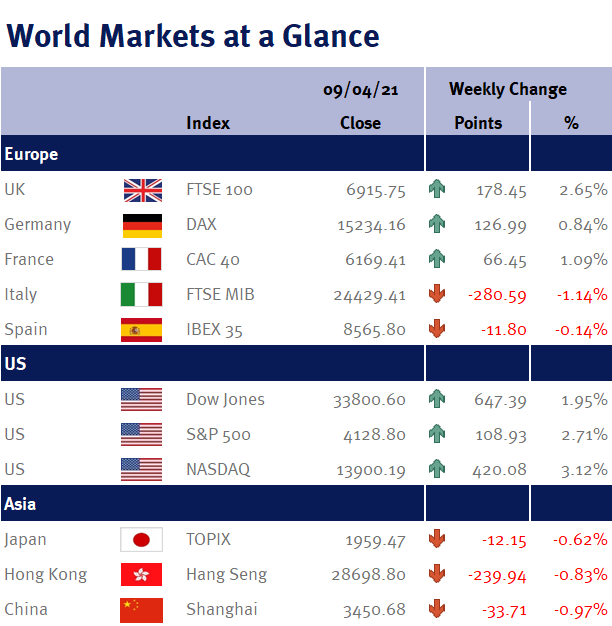Inflation is always calculated and expressed as a percentage change compared to prices 12 months before – and thanks to a mixture of OPEC supply cuts and a more optimistic economic outlook, the oil price has risen very strongly following its dramatic collapse last April. Consequently, as the 2020 oil price decline is replaced by the higher 2021 oil price, year-on-year inflation readings in the coming months will quickly accelerate, in what is known as the ‘base effect’.
However, as we have previously stated (which admittedly is contrary to the views of the majority of major economists), this coming rise in inflation will simply be transitory. In fact, we believe inflation will quickly fall back next year – and as a consequence, we are expecting central banks (such as the US Fed, BoE, ECB and BoJ) will ignore these inflation readings and leave monetary policy loose.
Thankfully, our view was backed up this week by dovish comments from a number of policymakers at the US central bank, including the Fed chair, Jay Powell, who warned that the disparate distribution of coronavirus vaccines would mean that the global economic recovery would be “uneven”. This doesn’t sound to us like a Fed that is thinking about increasing interest rates anytime soon – and we have been around and managing client investments long enough to fully understand the adage, “don’t fight the Fed”! And of course, accommodative monetary policies are very positive for equity markets.
Looking ahead to this week coming, our eyes will be focused on the markets’ reaction to the US CPI inflation on Tuesday (13 April 2021). Other important US data releases include retail sales and the Empire State manufacturing index on Thursday (15 April 2021); along with housing data and the University of Michigan consumer sentiment reading on Friday (16 April 2021).
Elsewhere, we have UK industrial and manufacturing production; Eurozone CPI; Chinese Q1 GDP; Chinese retail sales; and Japanese PPI.
Investment Management Team


